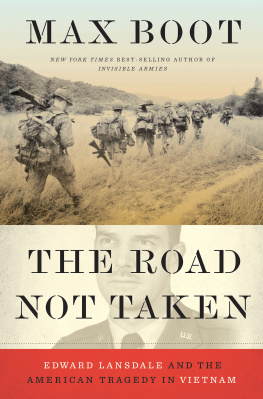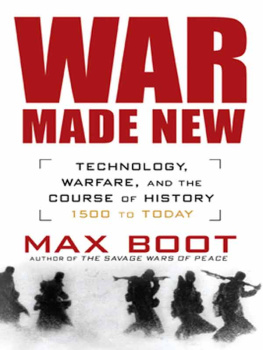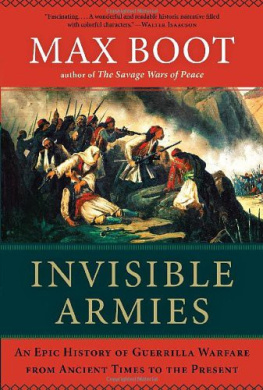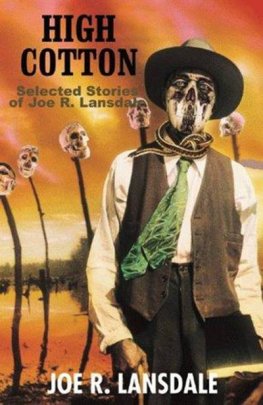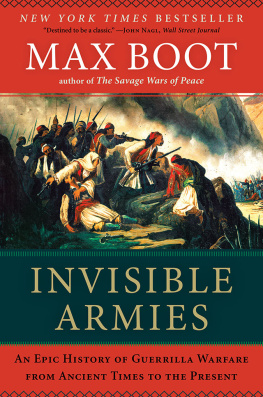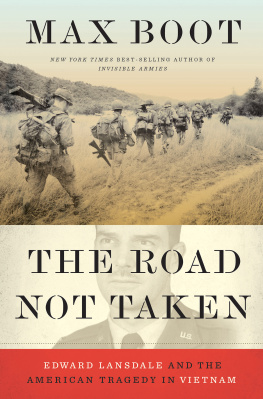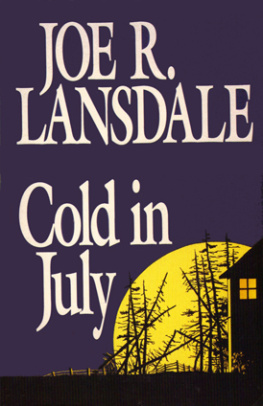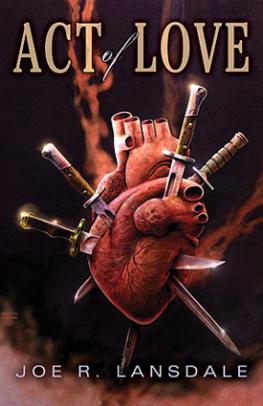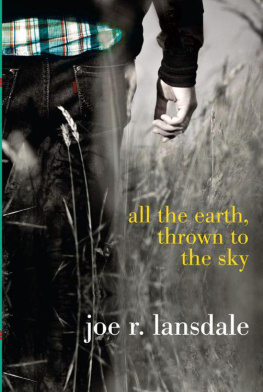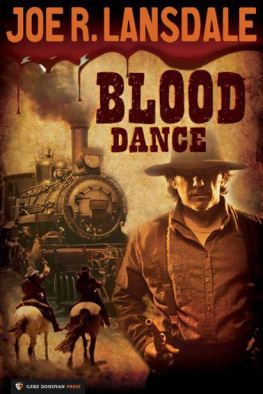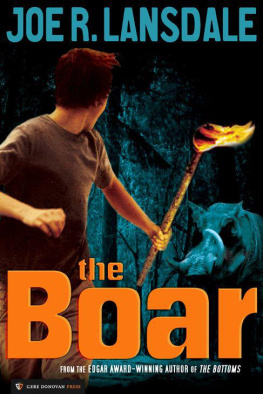
While toiling on this book between 2013 and 2017, I have been aided by a succession of first-rate young research associates. While I did all of my own research and writing, my RAsfirst Greg Roberts, then Harry Oppenheimer, and finally Sherry Chohelped by tracking down books, contacting archives, making logistical arrangements, acquiring illustrations, preparing budgets, and performing myriad other tasks.
I am grateful for the financial, intellectual, and moral support of Roger Hertog and the Hertog Foundation, Dianne J. Sehler and the Bradley Foundation, and other supporters who prefer to remain anonymous.
I am also grateful to the archivists and librarians all over the world that my RAs and I worked with. Trang Nguyen helped me to conduct research in Vietnam; Alice Le Clezio in France; and Kathryn Blankenberg at the Hoover archives at Stanford. Henry Kissinger was kind enough to grant me permission to quote from his papers at Yale.
Special thanks to the family members of Ed and Pat Lansdale who shared with me letters and photos that have not been seen by any previous author: Pats grandchildren, Patricia Pelaez-Yi, Leah Pelaez-Ramos, Manny Pelaez, and Francisco Kelly; Eds children, Ed and Pete Lansdale, and their wives, Carol and Carolyn, respectively; and Eds niece Ginger Lansdale Brodie, and her husband, Robert. All of them also shared their memories during the course of extended interviews and email exchanges. I could not have written this book without their generosity and help.
Many of the people who worked with Lansdalea full list is in the bibliographytook the time to sit down with me and share their recollections. The journalist Marc Leepson shared interviews he conducted for a book about Lansdale that was never written. The late Cecil Currey interviewed Lansdale and many of his associates, now long gone, for his own biography. I am grateful for his spadework, and have drawn on the transcripts he left behind.
Rufus Phillips, one of Lansdales closest friends, not only spent many hours reminiscing with me but also made himself available to answer a plethora of questions via email. Once I had a manuscript ready, he read it over carefully and pointed out ways to make it more precise. The manuscript was also read by two anonymous academic reviewers commissioned by the Council as well as by two retired generalsSam Wilson and Victor Hugowho worked with Lansdale. They made many suggestions that I incorporated. Finally, the novelist Karl Marlantes not only offered kind words of praise but also gave me the nudge that I needed to conduct some final tightening of the text.
It is a privilege to be represented by one of the best and most thoughtful literary agents in the business, Tina Bennett of William Morris Endeavor. I am deeply grateful for all of her help, as I am for all that my editor, Robert Weil of Norton/Liveright, has done for this book and for me personally. As far as I am concerned, Bob is the second coming of Maxwell Perkins; I cannot imagine a more skillful or supportive editor. He not only persuaded me to write this book but also consistently elevated my prose. Bobs assistant, Marie Pantojan, has also been a pleasure to work with, as has the whole team at Norton/LiverightPhil Marino, Anna Oler, Steve Attardo, Bill Rusin, Peter Miller, and Cordelia Calvert. All of them care deeply about books, not just about the business of publishing. David Lindroth once again drew the beautiful maps.
Finally I must thank my loved onesespecially my partner, Sue Mi Terry; my stepchildren, Alexander and Zachary; and my children, Victoria, Abigail, and William; along with my mother and stepfather, Olga and Yan Kagan; and my father and stepmother, Alexander Boot and Penelope Blackie Bootfor enriching my life and being a constant source of inspiration. Sue, in particular, has been both a perceptive critic and a staunch champion, and I have benefited immeasurably from both characteristics.
The Council on Foreign Relations (CFR) is an independent, nonpartisan membership organization, think tank, and publisher dedicated to being a resource for its members, government officials, business executives, journalists, educators and students, civic and religious leaders, and other interested citizens in order to help them better understand the world and the foreign policy choices facing the United States and other countries. Founded in 1921, CFR carries out its mission by maintaining a diverse membership, with special programs to promote interest and develop expertise in the next generation of foreign policy leaders; convening meetings at its headquarters in New York and in Washington, D.C., and other cities where senior government officials, members of Congress, global leaders, and prominent thinkers come together with CFR members to discuss and debate major international issues; supporting a Studies Program that fosters independent research, enabling CFR scholars to produce articles, reports, and books and hold roundtables that analyze foreign policy issues and make concrete policy recommendations; publishing Foreign Affairs, the preeminent journal on international affairs and U.S. foreign policy; sponsoring Independent Task Forces that produce reports with both findings and policy prescriptions on the most important foreign-policy topics; and providing up-to-date information and analysis about world events and American foreign policy on its website, www.cfr.org. The Council on Foreign Relations takes no institutional positions on policy issues and has no affiliation with the U.S. government. All views expressed in its publications and on its website are the sole responsibility of the author or authors.
Perhaps Americans will never learn the simplicity of fighting a political war.
EDWARD LANSDALE
E DWARD LANSDALE spent much of his career trying to convince Americas military and political leaders that there was more to defeating insurgencies than killing insurgents. As he put it near the end of his life, Damn hard for guerrillas to get the people to help them throw down a government that the people feel is their very own.
A future generation of American military leaders would turn out to be just as averse to Lansdales arguments. As soon as the Vietnam War was over, the military services threw out all of the lessons of counterinsurgency, learned at such high cost. After a visit with Special Operations Forces at Eglin Air Force Base in Florida in 1980, Lansdale noted sadly, The only remnant of the old days is a brief, one-week course
The loss of interest in counterinsurgency and an insistence on pursuing a conventional, firepower-intensive strategy led the United States to the brink of defeat in Iraq from 2003 to 2006. No matter how many insurgents American forces killed, more seemed to pop up. Finally, in desperation, in 2007 the Bush administration tried a different approach under General David Petraeus. Shortly before going to Iraq to take command, Petraeus had coauthored Field Manual 3-24, the U.S. Army/Marine Field Manual on Counterinsurgency. Published in late 2006, FM 3-24 did not mention Lansdales nameit cited instead other theorists such as David Galula and T. E. Lawrence who by that point were better known, in no small part because they had produced books that had stood the test of timebut, whether the authors knew it or not, his ideas permeated its pages. One can imagine Lansdale nodding in accord if he had been alive to read passages such as Long-term success in COIN depends on the people taking charge of their own affairs and consenting to the governments rule, or It is vital for commanders to adopt appropriate and measured levels of force and apply that force precisely so that it accomplishes the mission without causing unnecessary loss of life or suffering. The application of these tenets in Iraq helped to produce the impressive, if impermanent, success of the surge in 200708.
Next page
